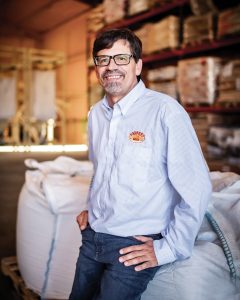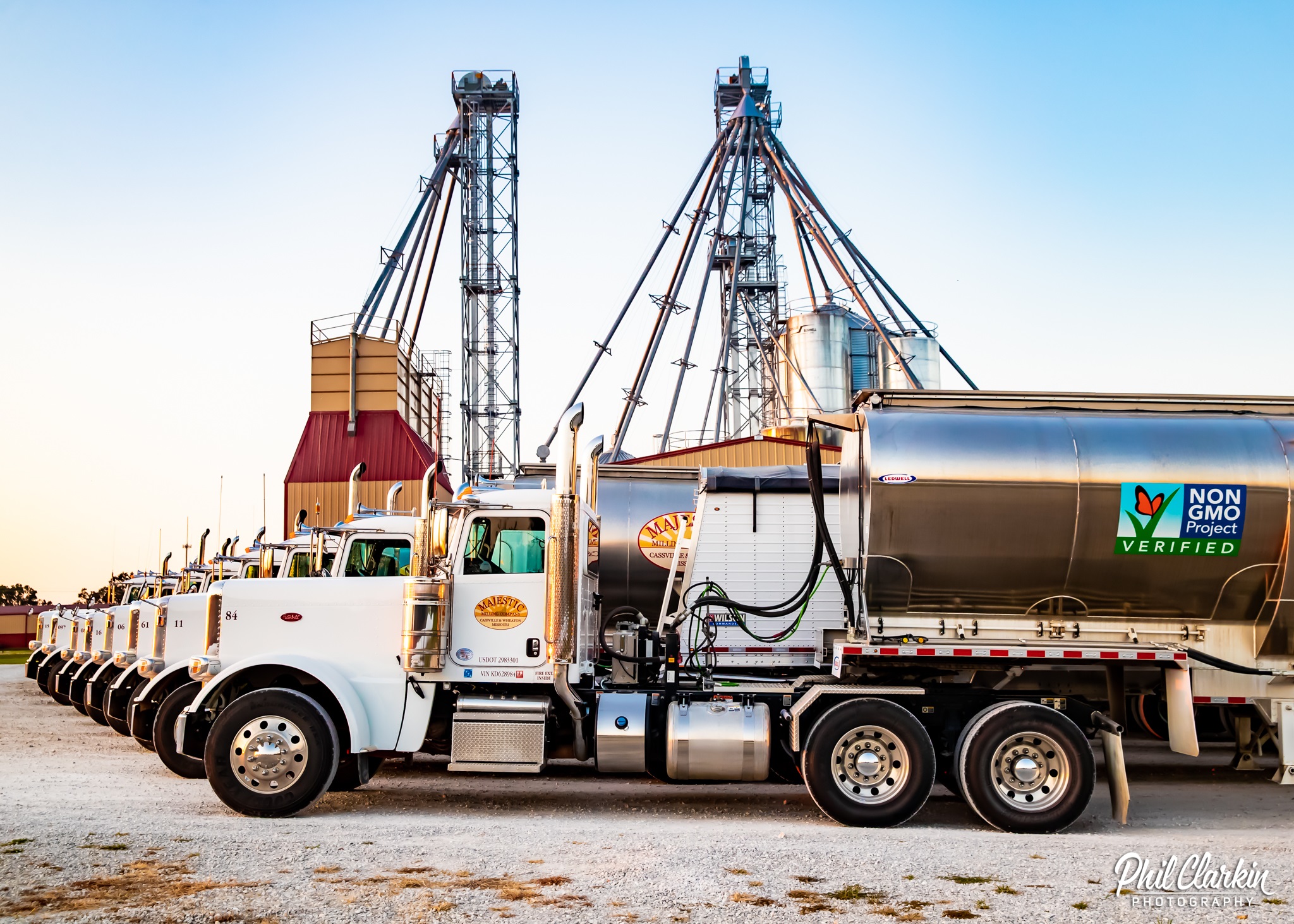
Mark Hudson, owner of Majestic Milling
The path that led to Mark Hudson’s opening of a state-of-the-art non-GMO corn milling facility in Missouri, and to the recent launch of a soybean processing facility producing organic oil and meal, brings to mind a quote from Louis Pasteur: “Fortune favors the prepared mind.”
Business is hearty at the corn mill, and the outlook promising for the soybean plant, partly due to the COVID-19 pandemic—people are demanding cleaner food to support health and immunity. Organic eggs and broilers in particular are popular items, and Majestic Milling’s customized combinations of organic, non-GMO, and antibiotic-fee corn and soybean meal feed formulas, supplemented by all natural micro-ingredients, are being shipped “everywhere,” Hudson said.
Long-term plans materialize with feed opportunity
On May 2017, the company produced its first load of feed—but Hudson’s farming connection goes back generations. He grew up on a Missouri farm, where 11 generations have engaged in livestock operations. He worked after college as a grain inspector, learning about the local food movement. Following that, his 20 years in retail construction “supported [his] ‘farm habit,’ ” he says. He proceeded to acquire land, to be in a position to open a feed mill.
When California amended Proposition 2 in 2010 mandating that all egg sales derive from cage-free chickens, Hudson realized farmers were struggling; the market niche for independent egg producers was clear and strong. Within a year, market demand for organic and non-GMO eggs in particular, surged.
“I wanted to supply the feed [those organic egg farmers] would need,” he said. Organic feed for layer hens is Majestic Milling’s top seller, followed by feed for broilers, turkey, and pork.
Hudson was initially going to build a small mill—capacity three tons/hour—but his partner urged him to go bigger. Now the mill in Exeter, MO can make 60 tons of feed per hour. His timing was also fortuitous due to the Food Safety Modernization Act (2018). Many older mills couldn’t meet the new regulations (i.e., prioritizing traceability) and were forced to close. “A year later we can tell you the exact content of the feed by lot number,” he said.
Encouraging production of non-GMO corn
The basic feed formula is a combination of soybean meal and corn, with micro-ingredients and minerals added. Clients often customize formulas—Rock Hill Foods, a large client, requires formulas for each different stage of a hen’s life. Preparers select from the 30 different bins of all-natural micro-ingredients to fill client orders. “We get things from all over,” Hudson added. “Our certified organic paprika for the chickens, for instance, comes from Israel.”
Of the 139 products, 50% are certified organic and 40% are Non-GMO Project Verified. The remaining 10% account for antibiotic-free feed, mostly for hogs.
Majestic initially wasn’t going to do non-GMO feed, but one client requested it—within eight months, the company had acquired Non-GMO Project verification. “The Non-GMO Project team was quite helpful,” said Hudson. “It’s a steep learning curve as a new company, but worth it.”
The company actively recruits farmers to switch or add non-GMO corn to their production. It contracts with growers and provides guaranteed markets. “We have developed most of what we need (non-GMO) from about 100 local farmers—within 150 miles,” Hudson says. “Organic is a different story. We get that from all over the U.S., West Compton to Florida and Nebraska. But only 25% of our organic soy is grown in the U.S. We’re helping 6,000 acres transition to organic soy and corn locally—I’m most proud of that.”
This June, the certified organic soybean facility opened in Aurora, MO. The soybeans come from Argentina, and 60% to 70% of the meal will be used at the feed mill. A transloading facility for trucks and trains is being built, served by both BNSF and Union Pacific railroads.
Pandemic brings business boost
Business has increased steadily, mostly due to organic meat demand—Christmas turkeys last year, non-GMO broilers during the lockdown. Since the lockdown, business has grown 12%. Supply chain disruption hasn’t been an issue.
Hudson says food facilities already enforce stringent cleanliness measures. The biggest change is in the trucks coming in. “We no longer let drivers out of their trucks; we use scanners for paper exchange. Our day and night shifts used to have a crossover period, but now they don’t even see each other. A cleaning employee puts an hour of cleaning in between shifts.”
Hudson is thinking into the future. “We still have capacity at our mill. I may expand our broiler and egg business. I’m open to geographic expansion, and even to opening another mill.”





